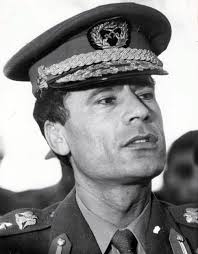The Legacy of Muammar Gaddafi: Libya’s Controversial Leader

Introduction
Muammar Gaddafi, the former leader of Libya, is a figure whose life and regime have continued to spark debate and analysis even years after his death in 2011. His 42-year rule was marked by both infrastructural advancements and significant human rights abuses, illustrating the complexity of his legacy. Understanding Gaddafi’s tenure is vital, as it paved the way for the current socio-political landscape of Libya and has implications for broader Middle Eastern politics.
Overview of Gaddafi’s Regime
Gaddafi came to power in 1969 through a military coup, establishing a regime that aimed to promote Arab nationalism and socialism. His government was known for its authoritarian practices and suppression of dissent. Throughout his rule, Gaddafi implemented various economic policies, including nationalisation of the oil industry that significantly boosted Libya’s GDP. This wealth allowed for notable investments in education, infrastructure, and health care, leading to improved living standards for many Libyans.
Human Rights Violations
However, Gaddafi’s government was also notorious for severe human rights abuses. Critics faced imprisonment, torture, and even execution. His foreign policy was equally controversial, often involving support for militant groups, which drew international condemnation and led to sanctions against Libya. The situation escalated in 2011 when a series of protests, inspired by the Arab Spring, demanded his resignation.
Fall from Power
The protests eventually culminated in a civil war that resulted in NATO intervention. By late 2011, Gaddafi was captured and killed by rebels. His death marked a dramatic end to an era, but it also left a power vacuum and exacerbated tribal and political divisions, leading to ongoing conflict in Libya.
Current Relevance and Legacy
Today, the repercussions of Gaddafi’s rule are evident in Libya’s continued struggles with instability and governance issues. The divisions created during his reign have continued to plague the country, with various factions vying for control and influencing the region’s dynamics. As the international community watches Libya’s uncertain future, Gaddafi’s complex legacy serves as a crucial reference point for understanding the challenges facing the nation.
Conclusion
Muammar Gaddafi remains a polarising figure; for some, a champion of anti-imperialist sentiments and economic independence; for others, a dictator whose policies had lasting detrimental effects. Understanding his legacy is essential not only for Libyans but for anyone interested in Middle Eastern politics, as it reflects the intricate interplay between leadership, governance, and the quest for democracy in a post-Gaddafi Libya.









